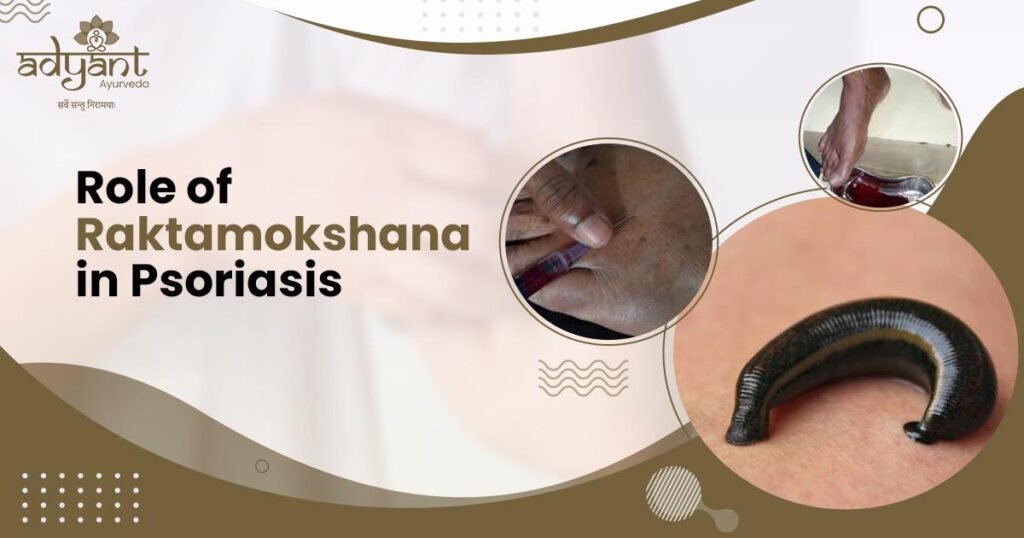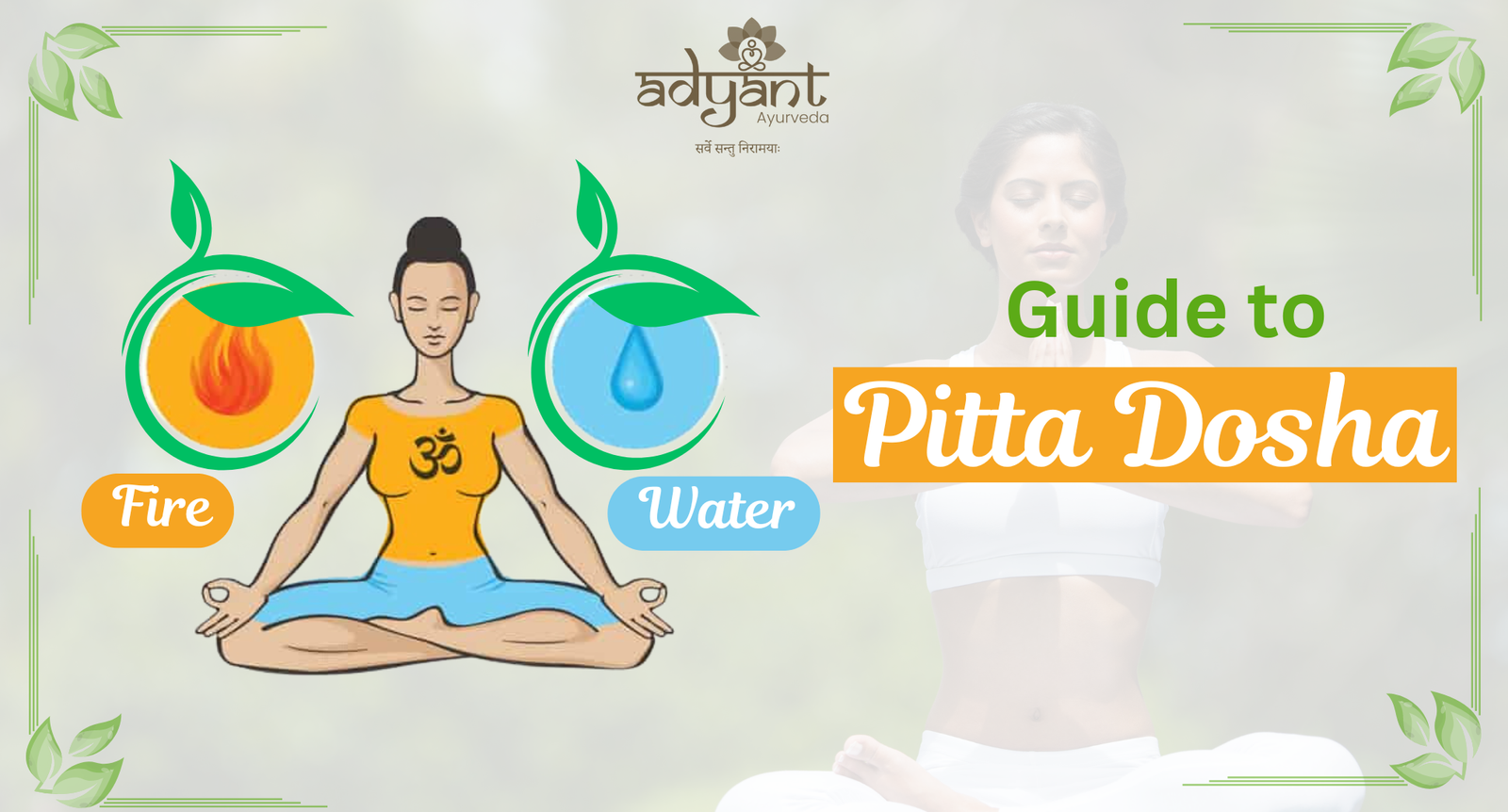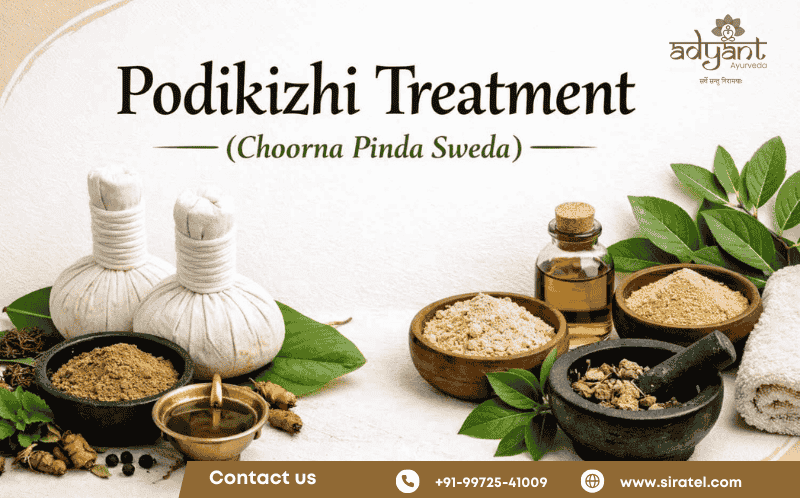Table of Contents
Toggle
Role of Raktamokshana in Psoriasis Ayurvedic Treatment: Psoriasis is a chronic, autoimmune skin condition characterized by the hyperproliferation of skin cells, resulting in scaling, inflammation, and discomfort. This article explores the Role of Raktamokshana (Bloodletting Therapy) in Psoriasis, a powerful Ayurvedic treatment that aids in detoxification and immune modulation. The term psoriasis originates from the Greek word ‘psora’, meaning itch.
For a free consultation with top ayurvedic doctors for Psoriasis Ayurvedic treatment, download our app from Play Store “AyurCare“
What is Psoriasis?
As per Ayurveda, psoriasis is a skin disorder caused by the intake of Viruddha Ahara Dravyas (incompatible foods) and Viruddha Vihara (bad lifestyle habits). It is classified under Kushtha Roga (skin diseases) and is considered a chronic inflammatory multisystem disorder affecting the skin.
Causes of Psoriasis
Ayurveda identifies multiple factors contributing to psoriasis, including dietary habits, lifestyle choices, and emotional imbalances.
Dietary Causes:
-
Incompatible food combinations (Viruddha Ahara) – Fish with milk, honey with hot water, equal quantities of honey and ghee.
-
Intake of curd at night – Curd is Abhishyandi (channel-blocking), increasing Kapha and leading to toxin accumulation.
-
Eating when not hungry – Leads to Agni Mandhya (weak digestion), resulting in toxin buildup.
-
Consuming improperly cooked food – Increases Ama (toxins) in the digestive system.
-
Hot and cold food combinations – E.g., ice cream with hot chocolate disrupts digestive balance.
Lifestyle Causes:
-
Sudden exposure to temperature variations – Moving from heat to a cold environment causes skin dryness and itching.
-
Suppressing natural urges – Holding back vomiting, thirst, or bowel movements leads to toxin accumulation.
-
Stress and anxiety – Releases hormones that disturb immune function, triggering inflammation.
Signs and Symptoms of Psoriasis
-
Shyava Varna – Blackish-brown discoloration of the skin.
-
Kinakharasparsha – Rough, scar-like texture.
-
Parusha – Hard and thickened skin.
-
Kandu – Severe itching.
-
Scaling and flaking – Powdery white scales that resemble dandruff.
-
Burning sensation – Due to inflammation.
Psoriasis commonly affects localized areas such as the scalp, nails, palms, and soles. If untreated, it may spread to larger areas. The scalp is affected in 25% of cases, often appearing between 15-40 years of age.
Ayurvedic Treatment for Psoriasis
Ayurveda follows a holistic healing approach using Panchakarma therapy, herbal medicines, dietary adjustments, and lifestyle modifications.
Read more about Ayurvedic Treatment for Psoriasis
Panchakarma Therapies for Psoriasis
Based on dosha predominance, the following detox therapies are performed:
-
Vata-dominant psoriasis – Basti (medicated enema) is given to balance Vata and support digestion.
-
Pitta-dominant psoriasis – Virechana (purgation therapy) is performed along with Raktamokshana (bloodletting).
-
Kapha-dominant psoriasis – Vamana (therapeutic emesis) is planned to eliminate excess Kapha.
Among these, Raktamokshana Therapy is highly beneficial for skin conditions as it removes toxins from the blood, preventing disease progression.
Read Also: Panchakarma Treatment for Psoriasis
Role of Raktamokshana in Psoriasis
Raktamokshana helps in purifying Dushta Rakta (toxin-loaded blood), making it an Ardha Chikitsa (half of the treatment) in Shalya Tantra (Ayurvedic Surgery). It is recommended for most blood-related disorders, including psoriasis.
Types of Raktamokshana
-
Siravyadha (Vein Puncture) – Most effective in severe cases.
-
Jalauka (Leech Therapy) – Beneficial for localized psoriasis.
-
Shrunga (Cow’s Horn Therapy) – Rarely used.
-
Alabhu (Cupping Therapy) – Helps in Kapha-related conditions.
Siravyadha (Vein Puncture) for Psoriasis
Pre-Procedural Steps:
-
Patient’s hemoglobin, clotting time, and bleeding time should be tested.
-
Vitals (BP, pulse, heart rate) must be monitored.
-
Snigdha Yavagu (unctuous gruel) should be consumed 10 minutes before to prevent dizziness.
-
Salt and sugar water should be kept ready for emergencies.
Procedure:
-
The patient is made to sit or lie down comfortably.
-
The affected area is identified, and a tourniquet is tied above the vein.
-
A bold prick at a 45-degree angle is made to allow blood to flow out.
-
Blood is collected in a sterile jar.
Post-Procedural Care:
-
Lodhra Churna (anti-bleeding herbal powder) is applied to the puncture site.
-
A pressure bandage is placed to stop further bleeding.
-
The patient is observed for dizziness, BP fluctuations, or weakness.
Observations During Bloodletting:
-
Fast-flowing blood – Indicates Dushta Vata Dosha.
-
Moderate flow – Suggests Dushta Pitta Dosha.
-
Slow flow – Suggests Dushta Kapha Dosha.
The maximum amount of blood let out is one Prastha (~600 ml) in a healthy individual. The quantity is determined based on dosha accumulation and patient strength.
Read Also: Ayurveda Doshas
Benefits of Raktamokshana in Psoriasis
- Removes toxins and inflammatory mediators from the bloodstream.
- Enhances blood circulation and skin oxygenation.
- Reduces itching, scaling, and redness.
- Prevents disease progression and recurrence.
- Balances Vata, Pitta, and Kapha doshas.
Read Also: How to Reduce Pitta Immidietly?
Conclusion
Raktamokshana plays a crucial role in managing psoriasis naturally by removing toxins, purifying blood, and balancing doshas. Along with Panchakarma therapies, herbal formulations, dietary modifications, and stress management, Ayurveda provides a holistic and long-term solution for psoriasis patients.
For personalized Ayurvedic treatment for Psoriasis, consult our expert doctors at Adyant Ayurveda today!








